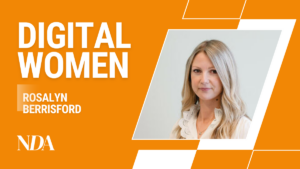By Fiona Gray, Marketing Director, Equator
Despite huge growth in the digital industry we still struggle to find the right skills to fill roles that will sustain its expansion.
Highlighting opportunities for young people is key to the sector’s continued progress, but we must make it accessible for everyone. And right now that’s a problem.
The general perception might be one of a wonderfully progressive and diverse discipline. Scratch at the surface, however, and that’s actually a blinkered view.
Most developers are male, most social media managers are female. I’m generalizing, but a gender division is apparent in almost every digital business.
In the early days of digital, roles were more diverse, far from the stereotypical pockets of job functions I encountered in my previous career in the public sector and academia.
Now, I’m a digital professional but also a mum to three children. I’m painfully aware of the challenges my kids will face if they follow in my digital footsteps – purely based on gender stereotypes.
Problems start in school
The number of girls choosing STEM subjects is on the rise. This seems like great news. Yet growth is predominantly in science and maths; numbers for computing and engineering science are generally stagnant and, in some places, they’re dropping. What’s more, girls are outnumbered six to one by boys in these subjects.
Teachers are trying. I spoke recently to one who attempted to create a Girls Who Code club. Their efforts garnered just one semi-interested pupil, and when she discovered she’d be alone she dropped out.
Science and maths attract female students because they can lead to careers deemed more ‘female friendly’, due to a larger emphasis on softer skills.
The significant rise of female veterinary students (+80% in recent years vs 40% in the 1980s) is well documented – crucially attributed to gender-distinct motivation:
The main reason males wanted to become a vet? Financial reward.
The main reason females wanted to become a vet? A love of animals.
Is it a coincidence that the income for vets has remained static since more women have chosen the profession? Apparently not. A key reason being that women who enter the profession are less inclined to demand higher salaries, meaning the average wage has stayed steady. In turn, men have turned away from this career, leading to an inverted inequality in the practice. And this isn’t limited to careers in veterinary science – it occurs across professions.
The confidence challenge
There is equal recognition among girls and boys that STEM subjects can lead to higher-paid roles. But the number of girls who see them as a potential career lags male students.
This is the fundamental problem. It is not only how the world values women, but how we value ourselves.
Girls rarely choose a career solely based on the financial security it offers. Even if they do opt for traditionally male-dominated sectors their pay is less – because their choice isn’t solely financial.
I have many exceptional people in my team, but female colleagues consistently recoil from putting themselves forward for awards and speaking opportunities, or making their great work visible. Time and again they resist the chance to recognise their worth. I revel in the – admittedly rare – occasions when a woman accepts her achievements and capabilities.
For many women, the alternative approach is emulating what they perceive to be recognisably ‘male’ behaviours – and that can be toxic. It often results from seeing other women as a threat rather than healthy competition. But it actually drives female colleagues away, while fuelling the view women are incompetent managers and also being unfavourable to men. That’s a lose/lose for all of us.
Committing to change
There are several ways we can address these tricky issues.
I believe it is up to everyone in the digital community – and every woman in the industry – to show girls that we need them. If we believe in ourselves then others will, too. We need to be present, be part of the conversation and show the value that we offer.
Incidentally, the teacher trying to establish the coding club was male. Had they been a woman would the outcome have been different?
Crucially, we must show boys that we need them as well. We should behave in ways that girls can aspire to while also inspiring boys. That means at all levels women need to support other women, collaborate with men, and work in a way that is conducive to growing and developing a space that’s accessible to everyone.
Strong female leaders who embrace their unique capabilities are vital. There is no denying that men and women are different in their approach. This is not a bad thing and should be welcomed, even celebrated. As leaders, women are uniquely placed to bring to the table a different perspective.
By placing women who embody and maximise these qualities at the core of a business, digital can tap into a diverse, complementary mix of skills and viewpoints, and differentiate itself from male-dominated sectors.
Digital is prospering. Let’s keep it that way, ensuring girls and women know their value so they play a central part in the industry’s bright future.









